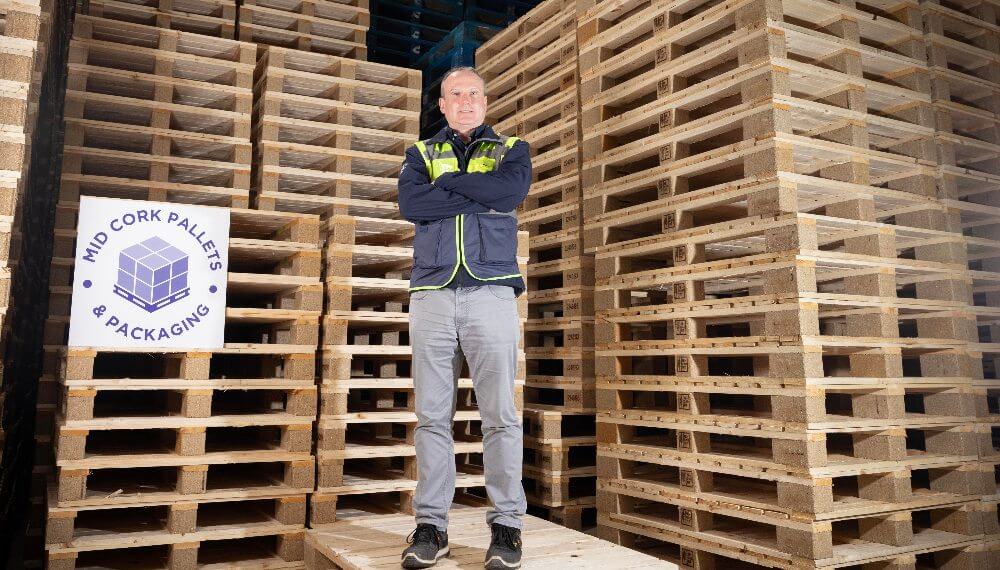Eventually every business in the supply chain will be impacted by CSRD, a Davy Horizons event in Dublin heard. It’s time for businesses to get ready.
Whether you are ‘in scope’ or not, a trickle-down effect will see every organisation in the supply chain forced to step up to the mark on sustainability reporting.
That was the loud and clear message at a Davy Horizons event in Dublin this week (17 April) where the seismic impact of upcoming sustainability regulations on the business landscape were discussed.
“CSRD is about improving decision-making, avoiding greenwash and increasing accountability to better inform stakeholders, particularly banks, shareholders, suppliers, customers and employees”
In January, the European Union’s Corporate Sustainability Reporting Directive (CSRD) came into force. The first companies will have to apply the rules this year for financial reports published in 2025.
The new directive modernises and strengthens rules about the environmental, social and governance (ESG) information that companies must report on and that will require mandatory assurance of non-financial information.
In plain English, it aims to cut out greenwashing and force businesses to evidence their impact on people and the planet.
More than 50,000 businesses across Europe will fall within the scope of CSRD by 2028.
The first in scope businesses expected to comply with CSRD will be large corporations followed by publicly listed SMEs. However, the reality is that if SMEs of all sizes wish to continue doing business with these organisations they need to be able to underscore their larger customers’ sustainability claims with the right information and actions.
Actions speak louder than words
This week Davy Horizons held an action-packed and informative ESG Peer Network event for C-suite and senior sustainability/ESG leaders in PLCs and large private businesses across Ireland.
The event heard how CSRD will ultimately bring clarity and consolidation across a range of reporting standards, but will be complex for business to navigate initially.
In a panel ably managed by Davy’s director of ESG Jonathan McKeon, the panel made it clear that 2024 will be a “year of implementation” for businesses across Europe getting to grips with the upcoming Corporate Sustainability Reporting Directive.
Even though most businesses may not be “in scope” among first wave of organisations that must be compliant with CSRD, it is likely they are part of a supply chain and in order to retain business the panellists agreed there will be a “trickle-down effect” for SMEs, so get ready to have the right information to hand
“CSRD is about improving decision-making, avoiding greenwash and increasing accountability to better inform stakeholders, particularly banks, shareholders, suppliers, customers and employees,” said Dr Dorothy Maxwell, head of Davy Horizons.
She said businesses who may not be “in scope” or among the first wave of firms that must be CSRD-compliant must be aware of a “trickle-down” effect if they wish to remain in the supply chain. “You could be a reporting company or in the value chain. If you are in scope you need to figure out what you need to disclose on. If mandated, you have to report how your business impacts people and planet.”
She said effective board leadership will be critical to drive a company’s sustainability transition, aligning strategy with ESG goals. Davy Horizons works with company chairs and the C-suite to prepare them for CSRD and IFRS reporting standards in the context of their sector, activities, regulation, peers, customers, shareholders and lenders.
Sustainable finance
“It is about transparency to all stakeholders going forward,” agreed Colette Shirley, director of Sustainability, Bank of Ireland Group.
Shirley said that the Bank has made sustainability its top priority and this can be reflected in innovative new products like the Eco Saver mortgage that provides customers with discounts based on their BER score.
“This is a real shift towards rewarding home owners,” she said, adding that in terms of commercial real estate the Bank recently doubled its funding for social and affordable housing to €1bn.
Bank of Ireland aims to provide €15bn in green finance by 2025 and to double that by 2030.
As well as supporting everything from the purchase of electric vehicles and investing in renewable energy projects, various lending products include the Green Business Loan, the GSLS loan with SBCI and Enviroflex for the agri sector.
In terms of Corporate Banking, product innovations include the Sustainability Linked Loan, the Green Capex Loan and the Green Bond Framework.
Bank of Ireland, in partnership with players like Kerry Dairy Ireland and Dairygold, recently launched Enviroflex sustainability-linked loans to provide an additional funding option for farmers implementing sustainable farming practices.
Imperative for change
Joanne Sheehan, Senior Advisor, Sustainability & Climate Action, Enterprise Ireland, told the audience how the State body has made a considerable number of grants and programmes available to businesses at various stages of the ESG journey from consultancy to training and implementation, including the Green Start and Green Plus programmes.
“The majority of those accessing these supports are SMEs who are not affected in the first wave of CSRD. A trickle-down piece is going to impact many organisations and there are so many small Irish companies who are not engaging yet. We asked 4,000 companies if they had a sustainability plan and two-thirds came back and said ‘what are you talking about?’”
However, this is changing as more firms drive their own sustainability agendas but also increasingly become aware of the need to maintain their place on the supply chains of larger business customers in light of the new reporting standards.
Sheehan said that more than 250 Irish companies have already accessed Skillnet training courses and many are focusing on innovation and R&D funding to drive business model changes to make their businesses more sustainable.
“The appetite for learning is enormous. Beyond that in terms of planning around sustainability and capital investment for decarbonisation projects, they can access up to €1m to put technologies in place to help with the scope one piece. Beyond that gain there is environmental aid up to €20m available for larger companies that want to do innovative things.”
-
Bank of Ireland is welcoming new customers every day – funding investments, working capital and expansions across multiple sectors. To learn more, click here






